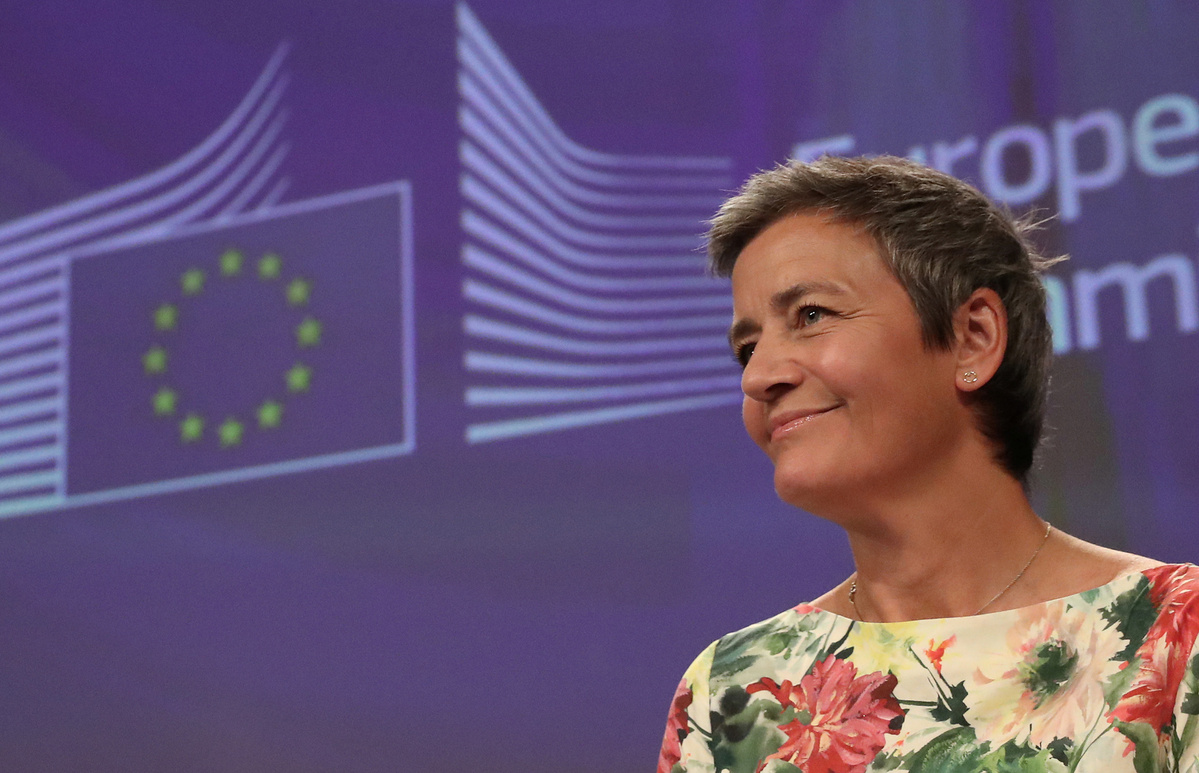EU anti-trust head fires warning to firms
By JULIAN SHEA in London | China Daily Global | Updated: 2019-10-10 09:30

The European Union's competition commissioner, Margrethe Vestager, has sent a warning to major tech companies that she is willing to take measures beyond the imposition of fines to ensure that their business is conducted on fair terms.
The Danish politician will start her second term in the position at the beginning of November, and during the first tussle with Google over its use of the Chrome browser on Android phones that lasted nearly seven years ended with the technology giant being fined $1.7 billion.
After her confirmation hearing at the European Parliament, Vestager told reporters "the things that we will be looking into is what kind of remedies come with the fine".
"For the future we will be much more aware as to what is needed in order for competition to come back in a market that has been plagued with illegal behavior by one or more companies," she said.
Vestager has warned that her new administration, which should begin its work at the beginning of November, would be vigilant of global tech companies, but indicated that she would not be looking to be provocative or confrontational.
"Breaking up companies, well, this is a tool that we have available, it can be done. The thing is I have an obligation to use the least intrusive tool in order to restore fair competition," she said.
In addition to continuing as the EU's antitrust chief, Vestager is also in line to take responsibility for making "a Europe fit for the digital age," a combination of tasks that will make her focus her attention particularly closely on the international technology sector.
This dual role has already drawn criticism from some members of the European Parliament, with Dutch Christian Democrat politician Esther de Lange saying that there is "clear incompatibility" between two responsibilities. But Vestager told reporters she would endeavor to be as independently minded as possible, with "checks and balances to make sure that every case that we open, that we investigate, that we decide upon is based on the evidence of the case, the facts and the case law".
This was a rare objection, however, to an appointment by incoming European Commission president Ursula van der Leyen that has been widely backed.
Vestager says one of the first things she wants to do when she starts her new term is draw up rules for the use of artificial intelligence, also known as AI, to ensure that the potentially revolutionary technology "is used ethically, to support human decisions and not undermine them". Europe, she added, is "in a hurry" with its AI strategy that will try to tackle bias and avoid entrenching existing inequalities.
Data collection and use is another topic that she is likely to investigate.
"We may also need to regulate the way that companies collect and use and share data so it benefits the whole of our society," she said.
























